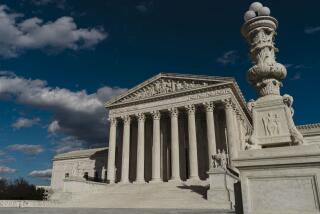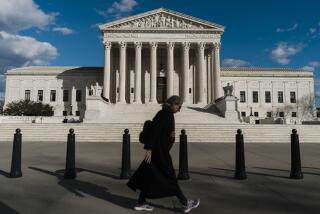Court OKs Review, May Relax ‘Exclusionary’ Rule on Evidence
- Share via
WASHINGTON — The Supreme Court said today it will consider relaxing significantly the so-called “exclusionary rule” that bars from criminal trials any evidence police seized unlawfully.
The court said it will use a case from Chicago to decide whether statements made by a criminal defendant after an unlawful arrest may be used by prosecutors to contradict a defense witness’ trial testimony.
The court previously has allowed prosecutors to use unlawfully seized evidence to contradict a defendant’s own trial testimony. But the justices never before have allowed the use of such evidence to rebut other witnesses’ testimony.
The Illinois Supreme Court, by a 4-3 vote, allowed such evidence to be introduced at the trial of Darryl James, sentenced to 30 years in prison for a 1982 murder.
Prosecutors said James shot and killed Geliria Boyd and wounded another youth in a late-night confrontation on a south Chicago street.
The trial judge previously had ruled that James’ arrest was unlawful because police at the time did not have a court warrant or probable cause to suspect him of committing a crime.
But the arresting detective was allowed to testify to rebut a defense witness’ testimony.
More to Read
Sign up for Essential California
The most important California stories and recommendations in your inbox every morning.
You may occasionally receive promotional content from the Los Angeles Times.












